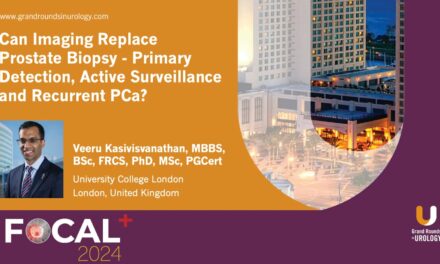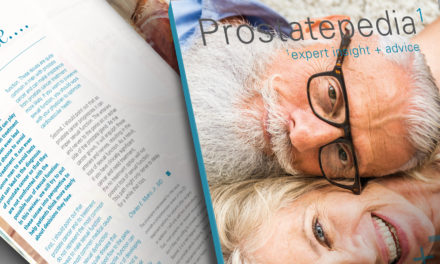Isaac Y. Kim, MD, PhD, MBA, presented “Pelvic Lymph Node Dissection During Radical Prostatectomy: Should We Do It?” at the 27th Annual Innovations in Urologic Practice conference on September 23, 2023.
How to cite: Kim, Isaac Y. “Pelvic Lymph Node Dissection During Radical Prostatectomy: Should We Do It?.” September 2023. Accessed Sep 2025. https://grandroundsinurology.com/pelvic-lymph-node-dissection-during-radical-prostatectomy-should-we-do-it/
Pelvic Lymph Node Dissection During Radical Prostatectomy: Should We Do It? – Summary
Isaac Y. Kim, MD, PhD, MBA, debates the benefit of Pelvic Lymph Node Dissection (PLND) during radical prostatectomy. He suggests there is no definitive evidence on PLND’s clinical benefit, no proven survival benefit, and no effective adjuvant radiotherapy. In his experience, he counsels patients according to the marginal benefit of PLND vs risks. Kim suggests there is a controversy as there is no consensus on PLND indication. In his opinion, the cutoffs do not make sense as the risks and benefits have to weigh and balance – the debate is not necessary if the risk of PLND is minimal. He describes a patient with cautery injury to the external IAC vein, which could have been a disastrous event, suggesting most data shows EPLND is associated with increased risk of complications. When comparing outcomes of patients with limited vs extended template node dissection, there is a lot of data that shows no significant survival benefit (Lestingi et al, Eur Urol 2021). While some data shown adjuvant treatment may make some difference, in his patients at Rutgers, patients who had pathologic N1 disease, compared limited template vs. extended template (EPLND) a showed a 3 year progression free survival and subgroup analysis stratified by lymph node metastasis showed no survival benefit. He doesn’t recommend EPLND given current data, considering the 2% cutoff is too conservative, and recommends a 5-7% cutoff. He questions the ability of ongoing clinical trials to answer questions of dissection, suggesting trials must demonstrate benefits for removal and then subsequent therapy. Kim is designing a clinical trial at Yale to determine if not performing PLND is superior to performing PLND at the time of radical prostatectomy.
About The 27th Annual Innovations in Urologic Practice:
Presented by co-chairs Mohit Khera, MD, MBA, MPH, and Michael Coburn, MD, FACS, the Innovations in Urologic Practice conference provides a detailed review and commentary on multiple genitourinary and urologic diseases. Among the featured oncological topics are bladder cancer and immunotherapies, as well as upper tract cancer management, prostate cancer, including state-of-the-art imaging, focal therapy, and MRI. Experts also discuss new tools and techniques for nephrectomy and treating advanced renal cell carcinoma. In terms of general urological approaches, the conference also includes pelvic reconstruction and trauma; men’s health topics like male infertility, andrology, and sexual dysfunction; OAB and voiding dysfunctions; and ways to diagnose and treat infections in the urology patient.
For further educational activities from this conference, visit our collection page.
ABOUT THE AUTHOR
Dr. Isaac Kim is a urologic oncologist and surgeon who specializes in the treatment, management, and prevention of prostate cancer, with the goal of helping patients navigate and better understand their disease. He has expertise in minimally invasive robotic surgery and has completed more than 2,100 robotic surgeries for prostate cancer. Dr. Kim's surgical focus has been on advanced and metastatic prostate cancer, as well as recurrent disease after radiation. Dr. Kim’s clinical research is focused on mechanisms of treatment resistance and specifically immunosuppressive factors produced by prostate cancer cells. He also has a strong interest in inflammation in prostate cancer and the role of surgery in men with advanced or metastatic prostate cancer.




